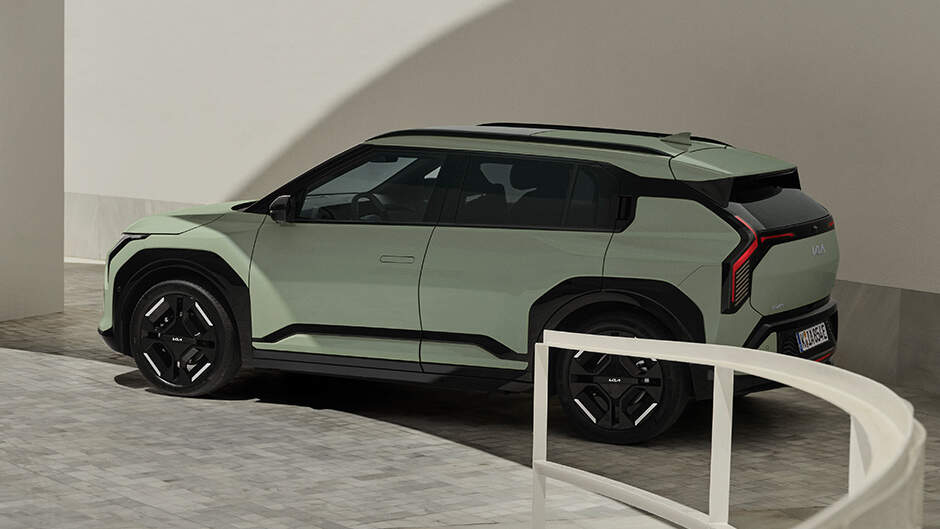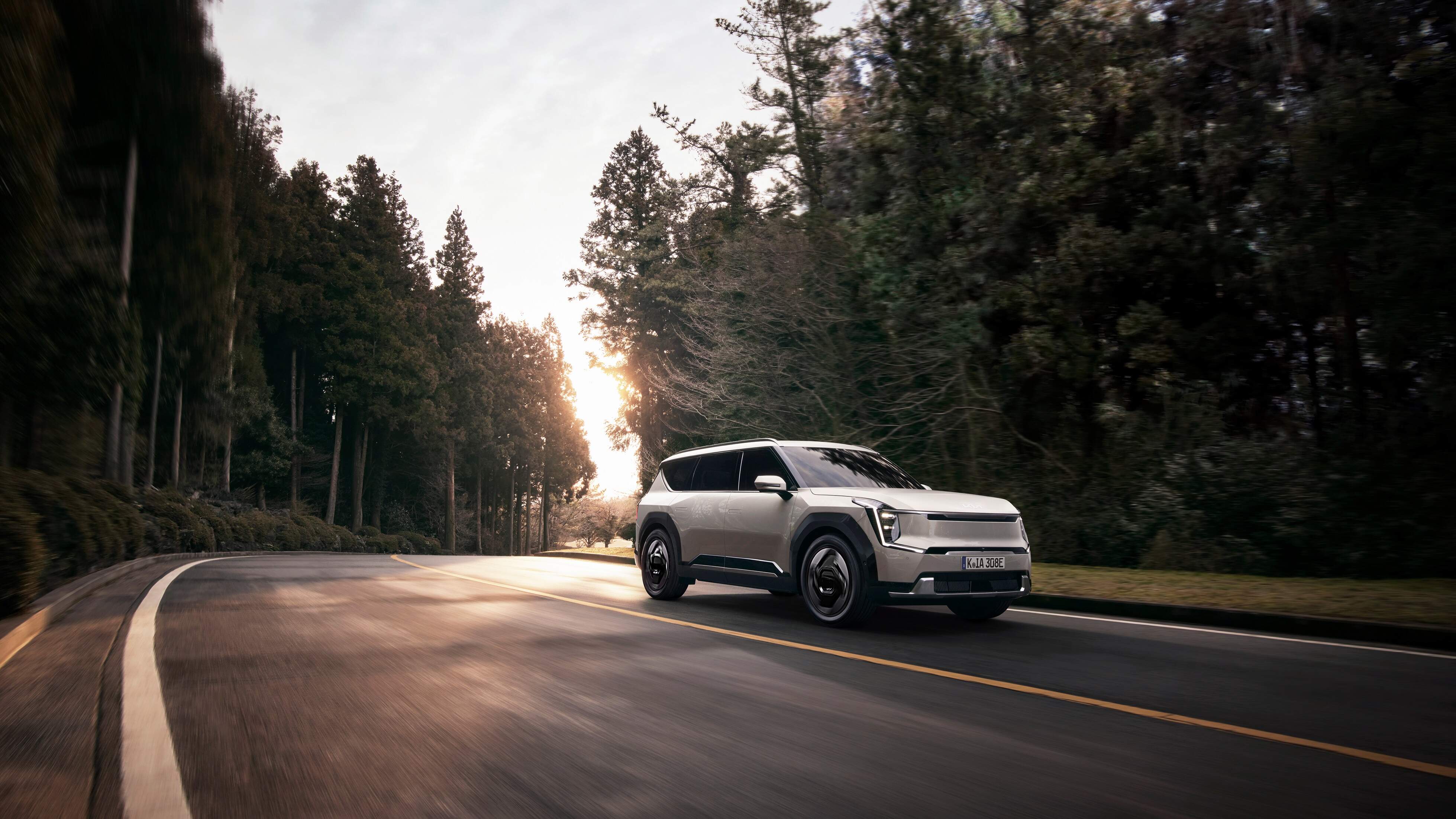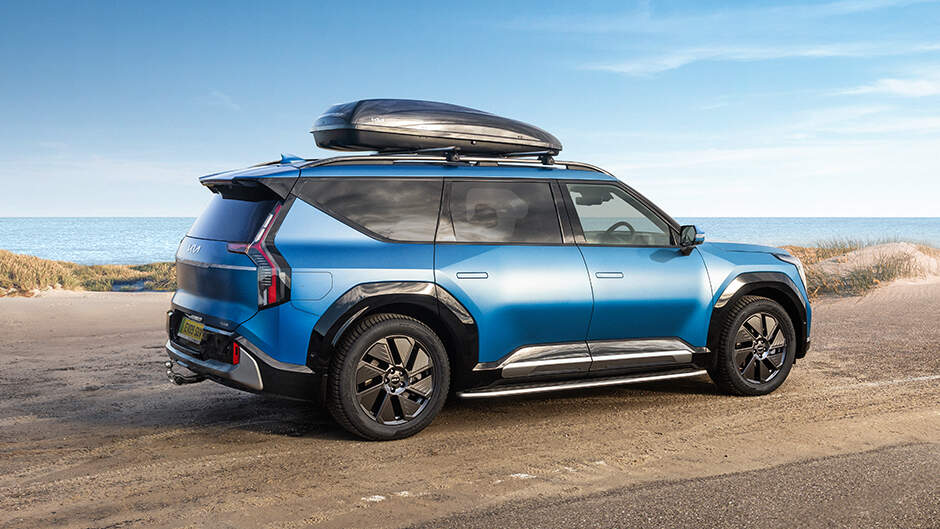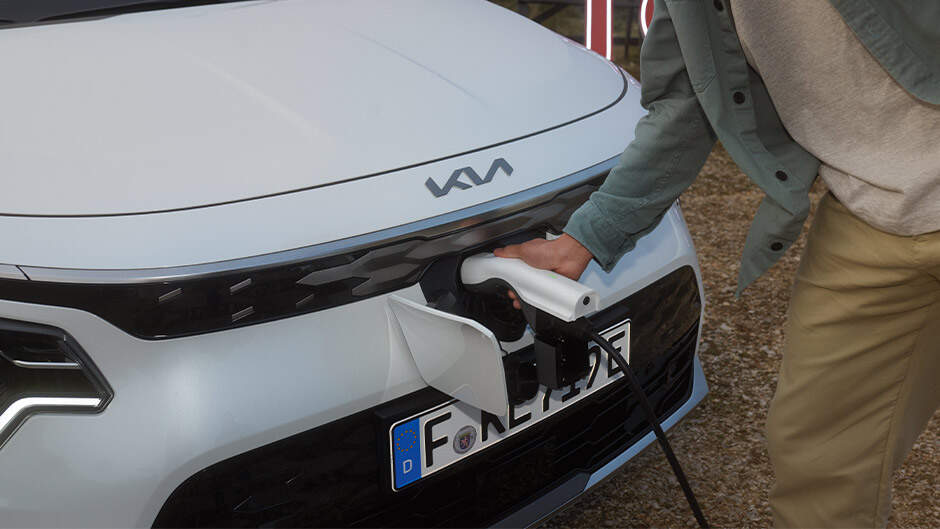Myths & Facts About Electric Cars

Myths & Facts About Electric Cars
At Kia, we’re committed to driving the electric vehicle
revolution and helping to change how people approach transportation. As more customers explore the benefits of going electric, we often hear questions about electric cars, with customers seeking clarity as they weigh up the pros and cons.
With advancements in technology, many misinformed concerns are becoming increasingly irrelevant. Our latest models, like the Kia EV3,
exhibit how electric cars are not only reliable but also safer and more eco-friendly than in previous generations.
In this article, we address some of the myths and misconceptions surrounding electric cars. We will explain where these misconceptions come from, along with how modern electric cars demonstrate that such reservations are becoming a thing of the past.

Myth: Electric Cars Can’t Travel Far Enough
A common misconception about electric cars is that their batteries only have a short range. While range anxiety
is natural when purchasing any vehicle, there is no need to worry about an EV running out of charge on the road.
The Facts:
Advancements in battery technology mean modern electric vehicles can travel much farther than earlier models. For example, the Kia EV3
offers a range of up to 375 miles on a single charge – more than enough to drive from London to Manchester, let alone handle everyday commutes. While the range of any electric car can vary depending on driving conditions, it's clear that the latest EVs are more than capable of carrying drivers as far as they need to go.
In addition to their impressive range, EVs also offer noticeable savings when it comes to refuelling and going even further. According to Compare the Market,
electric cars are £528 cheaper to run annually, due in part to their lower fuel costs. Meanwhile, Zapmap’s home charging calculator
shows that adding 150 miles and 77kWh to a Kia EV6 would cost £19 (or 12.6p per mile), whereas an equivalent petrol or diesel car would cost £22.50 (24.5p per mile).

Myth: EV Batteries Don’t Last More Than 5 Years
There’s a belief that electric vehicles have issues with the batteries degrading quickly and needing to be replaced every few years, making EVs costly in the long run. However, this is largely based on rumours about older batteries with dated designs.
The Facts:
This myth about electric cars doesn’t hold up when you look at Kia’s commitment to quality and longevity.
All Kia electric vehicles
are powered by Lithium-ion NMC (Nickel, Manganese, Cobalt) batteries,
known for their durability and efficiency. NMC batteries are a reliable choice, designed to support the demands of an electric car across its lifespan. These batteries also come with an 8-year warranty,
exhibiting Kia’s confidence in their long-term performance.

Myth: Charging Electric Cars Takes Too Long
The idea that electric cars have problems with charging times is another common myth, partly resulting from comparisons with refuelling petrol or diesel cars. In fact, the time it takes to charge an EV can vary considerably depending on the charger being used.
The Facts:
How long it takes to charge your electric car
varies based on the type of charger you use. With the rise of ultra-fast chargers, you can significantly reduce the time it takes to recharge your electric vehicle. Indeed, the Kia EV6
is able to recharge from 10% to 80% in just 18 minutes using a 350kW fast charger.
Meanwhile, home chargers allow EV owners to charge their cars overnight, leaving them with a full battery for the morning drive. Kia Connect allows Kia EV owners to schedule their charge, enabling the use of cheaper, overnight energy tariffs. This not only eliminates the need for extended public charging sessions but also enables greater flexibility. When public charging is used, it’s often for quick top-ups to provide enough range to comfortably get home, rather than a full recharge.

Myth: Do Electric Cars cause Potholes?
It’s sometimes argued that electric vehicles, being heavier due to their batteries, are more likely to cause potholes and accelerate road damage. However, this claim doesn’t hold up when examined more closely, and industry bodies have been quick to label it as misleading and misguided.
The Facts:
While electric cars can weigh more than petrol and diesel vehicles due to their batteries, the idea that EVs are causing damage such as potholes on our roads has been largely dismissed by motoring experts. Instead, the main culprits are said to be larger vehicles like lorries and buses.
According to Jack Cousens, Head of Roads Policy at AA, and reported by iNews:
“The reality is it’s the big stuff – the buses, lorries, HGVs, refuse trucks – that causes the imperfections in the tarmac. And when you get water in and it freezes, you get the expanding and contracting, and that’s what creates potholes.”

Myth: Electric Cars Are Not as Safe as Petrol Cars
Another topic of discussion is safety, with some individuals expressing concerns that electric cars are less safe than traditional internal combustion engine (ICE) vehicles. This is fuelled by the perceived risk that lithium-ion batteries in EVs are more prone to overheating, though any figures related to this are far less scary when put into perspective.
The Facts:
The truth is that EV battery fires are extremely rare. While QBE
reports a 33% increase in fires involving an electric car in the UK from 2022 to 2023, this is only an increase of 29 vehicles – and there are over a million
EVs currently on British roads. In other words, the increase only accounts for 0.0118% of UK electric vehicles. This is an exceptionally low figure that demonstrates that EVs aren’t disproportionately prone to fires. In fact, figures reported by AutoTrader,
including data from the UK Government,
showed that ICE vehicles are actually 20 times more likely to catch fire due to fuel leaks or engine failures. The rise in incidents also coincides with the rapid growth of EVs on UK roads, so an increase in absolute numbers, albeit a small one, is expected.
It is also important to remember that electric cars are subject to testing by the Euro-New Car Assessment Programme
(NCAP) to ensure they adhere to the highest standards of safety. These tests cover three factors of protection for adults, children and pedestrians, as well as the vehicle’s safety technology. The Kia EV9 was awarded a 5-star safety rating in 2023.

Myth: Electric Cars Break Down More Often
Some people worry that electric cars are more likely to require breakdown recovery services compared to petrol or diesel cars. This can be due to the perception that they rely on newer or untested technologies – a falsehood that is easily disproven.
The Facts:
In reality, EV technology has been under development for decades, with manufacturers investing heavily in research and development to refine and perfect their designs. This can be traced back to 1976 - via the Energy Saving Trust’s timeline
- when the US Congress passed the Electric and Hybrid Vehicle Research, Development, and Demonstration Act.
The industry’s focus has consistently been on delivering performance and reliability that can match or even surpass traditional vehicles.
Electric cars have fewer moving parts than ICE cars, which can mean fewer mechanical issues over time. With no oil changes, fewer fluids to replace, and less wear on the brakes due to regenerative braking systems, electric cars generally require less maintenance. Indeed, data from a study by breakdown provider Start Rescue
suggests that electric cars are 59% less likely to break down than cars with an internal combustion engine.
Kia also offers roadside assistance
as part of their warranty, meaning that electric car drivers can have peace of mind in the event of a breakdown and get back on the road as swiftly as possible.

Images shown are for illustration purposes only and may not be to full UK specification. Features shown are not standard across the Kia model range and availability will vary dependant on model. For further details please refer to the individual model specification sheets.
Product availability varies by models. To find out which products are available for your vehicle, please contact your Kia dealer.

